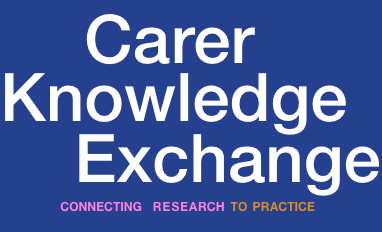Research Library
The Carer Knowledge Exchange Research Library is a collection of recent Australian publications and other resources that contain reliable research about family and friend carers. It is constantly being added to, and you can suggest research to be included here.
There are two main ways to use the Research Library. The first is to search using the fields below. The second is to browse by category lower down the page.
For help using the Research Library, click here.
Please also see our Frequently asked questions page.
The publications in this research library may contain references to sensitive issues and cause distress. If you or someone you are with is in immediate danger, please call 000. If you feel upset or are in distress, you can contact Lifeline, 24 hours a day, 7 days a week by phoning 13 11 14 or texting 0477 13 11 14. For other information on support for carers please visit our support for carers page.
-
Add your research
Is something important missing from the Research Library? Share your research or suggest research by another author using our submission form. For more information about how to create an account click here and for more information about how to upload a publication to the research library click here.
My Research
Your Results
Filter my Results
Use the ‘filter my results’ function to further refine your search results. If you would like to start a new search, please use the ‘search for a resource’ function above
Your search has returned 45 results
-
1.1.2025
The Carer’s Leave Act 2023: Six months on
Carers UK
The Carer’s Leave Act 2023, effective from April 2024, allows employees in England, Scotland, and Wales to take up to one week of unpaid leave annually to care for a relative or dependant with long-term care needs, starting from their first day of employment.
-
13.9.2023
A case for an extended unpaid carer leave entitlement?
Productivity Commission
This is the final report of the Productivity Commission inquiry into the economic and social impacts of allowing informal carers to take extended unpaid leave from their work to care for older people who are frail and living at home.



